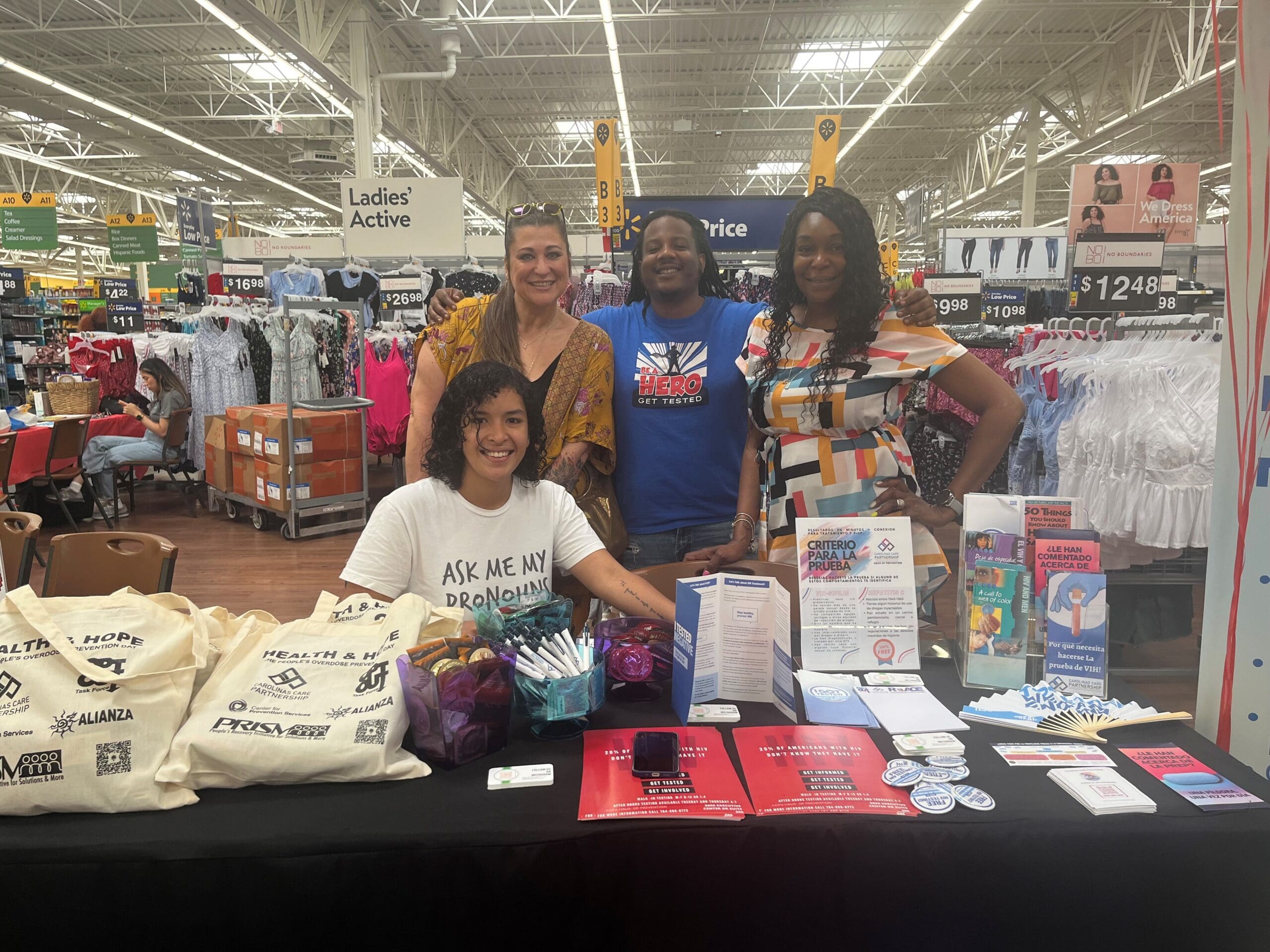Carolinas CARE Partnership (CCP)’s OPT Out Task Force is dedicated to tackling substance misuse in historically marginalized communities across North and South Carolina. Through a range of programs, OPT Out strives to increase access to services and reduce stigma associated with opioid use disorder in three specific populations: LGBTQ+ youth, LGBTQ+ young adults, and individuals living with HIV. The mission of the task force is to advocate for inclusive communities by providing education, outreach, prevention, and collaborative initiatives that improve overall wellness, promote dignity, and eradicate stigma related to substance use disorder (SUD) for the target demographics they serve. Stigmatization, mental health issues, and housing insecurity often intertwine, making targeted support essential.
Since its creation, OPT Out has devised innovative strategies to engage and support these communities. One such initiative is the “Breaking Barriers” series, which facilitates panel discussions with local organizations to provide deep-dive conversations on complex topics.
“We greatly emphasize data collection in the work that we do. Some of the more recent feedback we received from taskforce members was that they were very interested in delving deeper into topics related to our work,” Leslie Dill, OPT Out Program Manager. “A lot of our partners are sort of beyond the ‘substance use disorder 101’ type of conversations, so this series is our first attempt to provide a more thorough overview of our work to the community.”
Another noteworthy initiative is the “Reimagining the Rainbow” campaign, which cleverly employs LGBTQ+ symbolism to educate about opioid overdose signs. By using the rainbow, a symbol of LGBTQ+ pride, this campaign bridges the gap between identities and health concerns.
Recognizing the need to engage youth directly, OPT Out also recently launched an art contest focused on protective factors against substance use disorder. This competition not only sparks creativity but also prompts discussions surrounding healthy coping mechanisms. The winning artwork will ultimately be featured on billboards and become part of a multimedia campaign to further continue the conversation.
Lastly, the “Brave Space” campaign is yet another endeavor aimed at enhancing education on LGBTQ+ topics. By addressing key issues, they strive to eliminate the stigma surrounding marginalized identities.
OPT Out’s impact extends beyond the regional level. Through collaborations and partnerships, the task force has created a network of organizations working towards similar goals.
“I’m very intentional about collaborating with and seeking guidance from others who have similar grants to mine,” said Leslie. In addition to speaking at and attending conferences across the country, Leslie created a strong network of fellow preventionists by attending CADCA’s National Coalition Academy (NCA).
“I’ve made contacts within my state and beyond at the NCA. In fact, there was one participant from a coalition in Virginia who I connected with during Week One of the training. After learning more about our work, she asked if she could sit in on one of our task force meetings to see how it’s run and what works for us. I’ve found that opportunities like that, to share and learn from one another, can be really invaluable.”
“One of the goals I set for myself when I came into this role, was to have the work that our taskforce accomplishes be easily replicable across the country and across the world. I don’t want others to have to recreate the wheel when instead we can push forward and improve together. When talking about increasing access for historically marginalized groups, you cannot do that without increasing access to education and resources for the people who can make that change, so I share widely and often when I can.”
CCP’s OPT Out Task force is an exemplar in the fight against substance misuse. Their innovative initiatives, data-driven strategies, and collaborations highlight the importance of a holistic approach. By addressing the specific needs of historically marginalized communities, the partnership strives to create a more inclusive and supportive environment for all.



